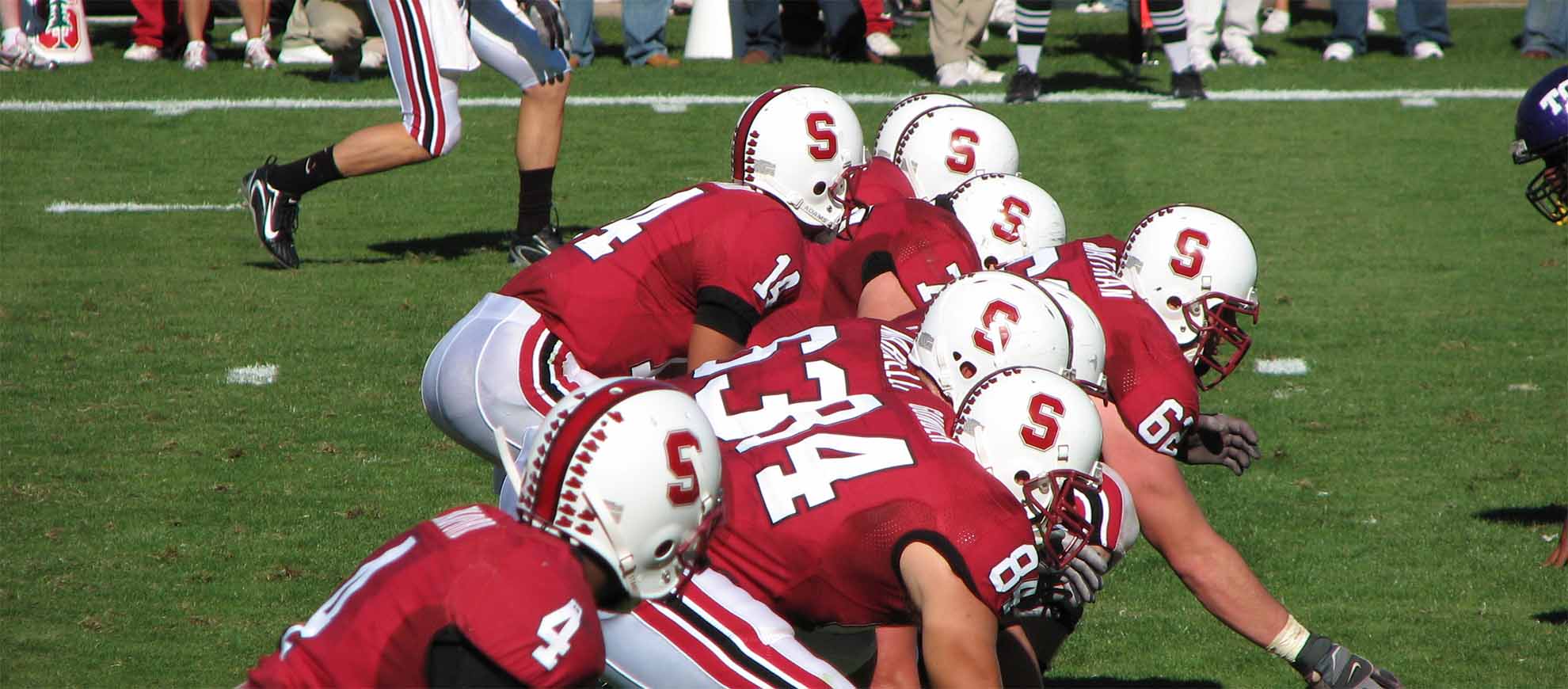Dr. John Gerdy is a former All-American basketball player and served at both the NCAA and as Associate Commissioner of the Southeastern Conference. He is author of several books including “Ball or Bands: Football vs. Music as an Educational and Community Investment”. His website is: JohnGerdy.com
There is profound irony in the reaction of college coaches and athletic administrators to the decision by Christian McCaffery not to play in Stanford’s appearance in the Sun Bowl. McCaffery’s reason is that he wants to begin preparing for the NFL evaluation combines immediately. Predictably, many in the college athletic establishment have criticized him for turning his back on his team and being disloyal to the university.
McCaffery will be a high draft choice in the NFL. He has simply made the calculation that the risk of injury practicing for and playing in what is essentially a meaningless post-season bowl game was too great. One wrong pivot or one low hit could result in a career-ending injury or a significant loss in contract revenue. Leonard Fournette, LSU’s star running back is skipping the Citrus Bowl for the same reason.
Both of these athletes are making a business decision. It ironic that those who benefit the most, from a personal economic standpoint, from the “system” of college football, are the first to criticize athletes who make a business decision aimed at protecting their long-term economic interests.
The fact is, from their first day on campus, athletes are taught that a football scholarship is not, as sold to them and the public, about education. It’s about business. Big business. There is no longer any question that the academic and social experience of scholarship football players at far too many institutions has been woefully inadequate and in some cases, fraudulent. The result is that on a daily basis, athletes are provided case studies and lessons in the cold, hard, business of major college football.
And now, when McCaffery and Fournette act in their own long term economic and career best interests, they are lectured by athletic administrators, television and bowl executives from on high in their fancy corporate suites while dining on filet mignon, crab legs and shrimp creole about the honor of the game and the sanctity of the team.
Leading the charge are the same coaches who will leave a school and the players they recruited for a better financial deal at another school at the drop of a hat. Often they don’t even wait around to coach in their own season ending bowl game. Where is the loyalty and commitment to team and university in those cases?
The hypocrisy is astounding.
No one should be surprised by these two athletes’ decision. It is simply the logical result of the fundamental values and realities of the athletic system they have lived in over the last three years. Major college football players are immersed in a fully professionalized system where everyone around them is cashing in on the riches of the game. Thus, it should be no surprise when athletes finally get to a point where they have some financial leverage or the possibility of significant financial gain that they’d act in their best interests to maximize the chances of being able to finally realize that financial gain.
College football is a business, plain and simple. That business has been created by coaches, athletic administrators and television and media executives and built on the backs of these young men. To criticize athletes for protecting their long-term financial interests after laying their bodies on the line for “Old State U” for three years is laughable.
The fact is, coaches, administrators and television executives have created a business “monster” within the educational system. And the educational community has been complicit in allowing it to happen. It’s about time the athletes upon whose backs the system is built are finally standing up for their own interests. And the number of athletes who will follow in McCaffery and Fournette’s footsteps in the future is going to rise.
Rather than criticize these athletes, athletic and academic “leaders” should take a long look in the mirror and come to grips with the fact that this is what they have created. And if university and athletic leaders don’t get serious about restructuring the system to where the deal struck between athletes and the institution becomes more balanced, they are going to have to deal with a lot more athlete unrest and rebellion than players sitting out meaningless bowl games.
Clearly, major college football players, who have been short changed and exploited for years, have been studying the system all along. They have paid attention and learned quite well, the business lessons the system has taught them. They are simply applying those lessons to improve their future personal and economic well-being.
Good for them.


Well stated, John. I agree wholeheartedly.